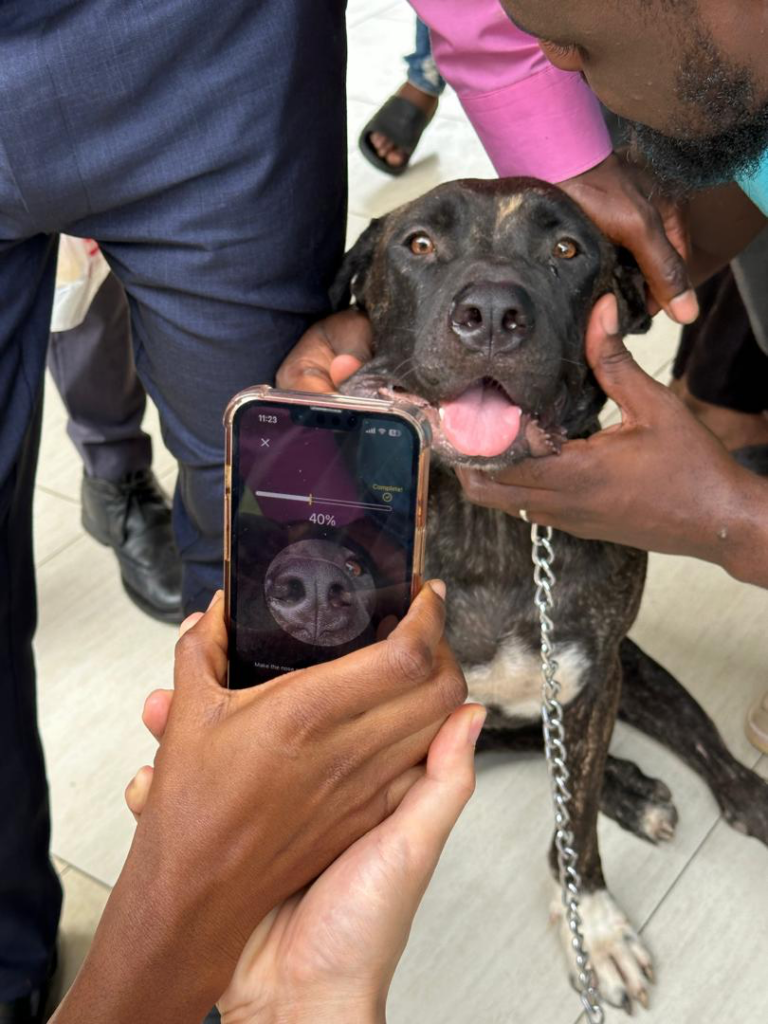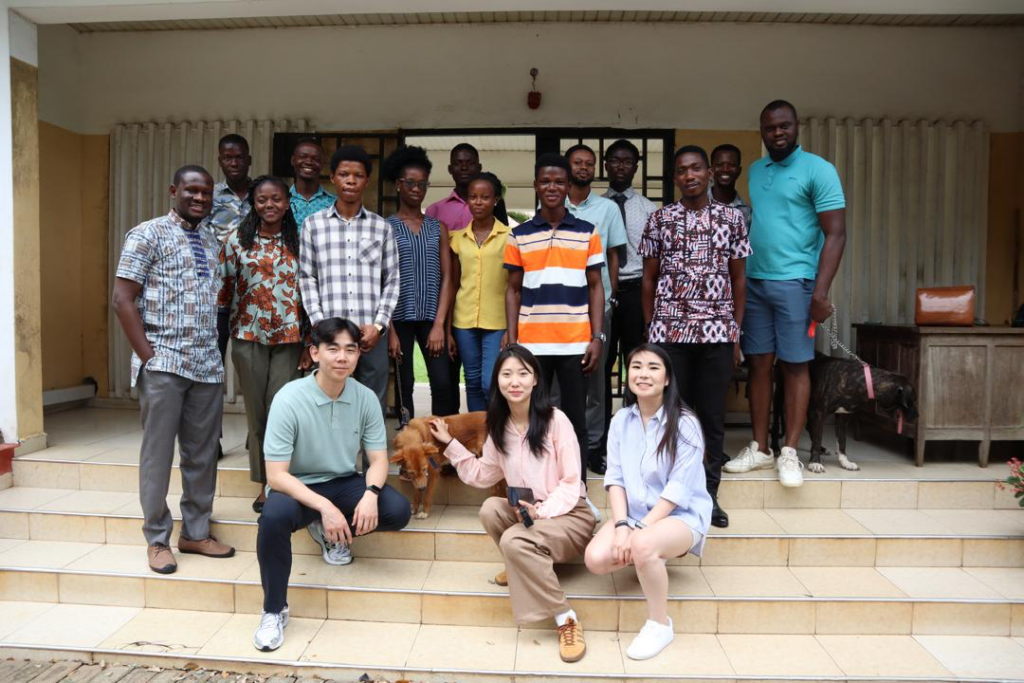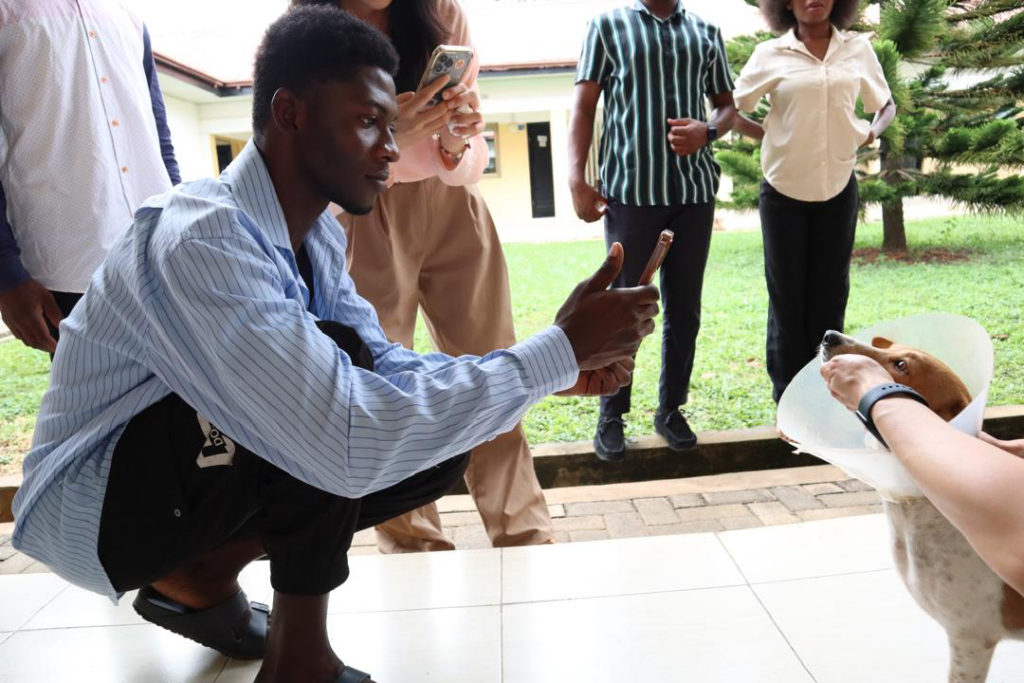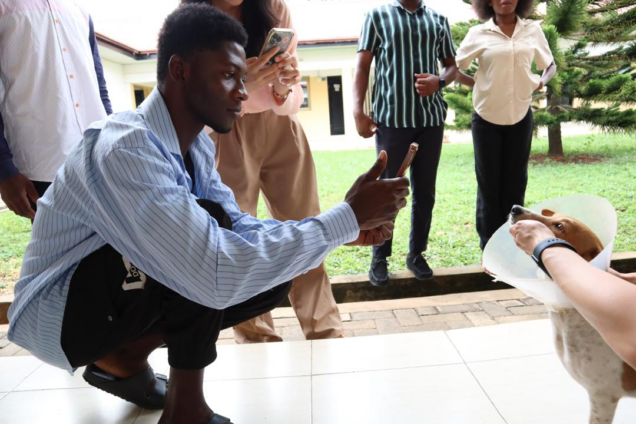Ghana has unveiled a groundbreaking approach to tackle the country’s long-standing rabies problem.
Dr Edem Apewokin of the Veterinary Services Directorate (VSD) highlighted that the existing system for recording dog vaccinations has been inefficient.
“To address this, we partnered with ISCI Lab from South Korea, which has developed cutting-edge technology for creating electronic pet certificates,” he told Joy News at the launch on Saturday.
According to Dr. Apewokin, “By implementing this technology, we aim to modernize the tracking of dog vaccinations across the country.
“We are optimistic that the government will adopt and support this initiative, providing veterinary services with the necessary resources for nationwide implementation.”

He added that the technology promises to improve the vaccination process, enhance the management of dog bite cases, and provide essential resources for veterinarians to vaccinate dogs and control stray dog populations effectively.
Choi Yon Jin, a researcher with ISCI Lab, recalled, “When the VSD first reached out to us in September 2023, they mentioned that although volunteers administer vaccinations, there’s no reliable way to track who received them.
“In other countries, microchip injections with RFID chips are used to identify dogs and maintain records. However, in Ghana, microchip implantation is rare and expensive, so an alternative identification technology was needed.”
“We have developed a system that allows for animal registration based on a face picture, a body picture, and a series of nose pattern pictures captured using an app. We input basic information about the dog and the owner’s contact details, and we also enable the uploading of vaccination records.
“The system records the longitude and latitude of where the vaccination occurred, the type of vaccine, and when it was administered.

“Additionally, it allows for uploading a picture of the paper certificate if available. This way, once dogs are vaccinated, not just for rabies but for any disease, the record is kept in one place,” she explained.
Choi Yon Jin emphasised the importance of tracking annual vaccinations for human health as well.
“For example, when someone is bitten by a dog with rabies, it connects to human health issues. We are meeting with health officials to discuss the interplay between animal and human health.”
She noted that the technology is already in use in Korea and that ISCI Lab recently signed a contract with a semi-government agency in Australia.
“We plan to release that package around early August, and it will be officially in use in their greyhound racing industry by August or September.

“Ghana is the third country we are bringing this technology to, after Korea and Australia. We are really excited about the work we can do with veterinary and human health here using our technology.”
At the workshop, veterinary students tested the app with the dogs present. David Klenam told Joy News that the app will significantly improve the system.
“This will help our system because currently, it is not effective in identifying dogs that have been vaccinated.
“If someone gets bitten by a dog, it is difficult to know the owner and whether it has been vaccinated or not. But with the app, it is easy to know and take action when needed,” he said.
ALSO READ:

